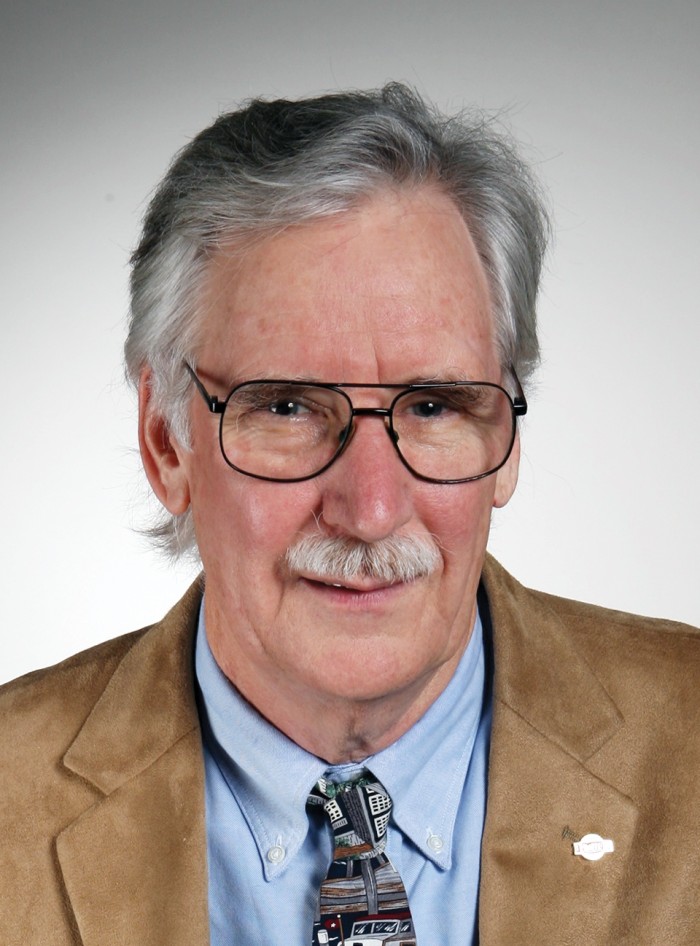When the 1983 film The Right Stuff won the Academy Award for Best Achievement in Sound, Tom Scott accepted his statuette on stage as part of the sound team. The following year, his work on Amadeus won him a second Oscar.
Yet the film industry is not where Scott expected to work. After earning a degree in civil engineering, he spent two years doing community planning in a small city in Venezuela with the Peace Corps. Then, in Los Angeles, he trained the next Peace Corps group bound for Venezuela.
With a background as an amateur musician, he landed his first job in sound nearby at a small independent recording studio; he built music recording facilities and traveled the globe recording bands on tour. And then he landed a gig working with cinema sound systems for Francis Ford Coppola’s 1979 film Apocalypse Now.

“It was like a concentrated postgraduate course,” says Scott. “I learned about movie sound recording and mixing, and I even got a credit in the movie. I was hooked!”
And he loved the collaborative nature of films. “Working in a studio with a band or going out on location to make a recording, it’s usually a fairly small group of people,” says Scott. “Working on a film is a much larger effort. You might be operating the big sound-mixing board with three or four other engineers and, often, the director, producers, and editors.”
As rewarding as the work was, he wanted to move his career forward. After “two home runs in a row,” he thought, “Maybe I should ask, ‘What’s next?’”
Scott spent the next seven years as director of engineering for George Lucas’s Skywalker Sound. At Skywalker, a new technology caught his eye, and he and several Lucasfilm colleagues decided to pursue it through their own company, Entertainment Digital Network (EDnet).
EDnet allows long-distance audio recording over special high-fidelity connections. “Voice and music artists can provide their talents to producers and projects all over the world instantly, saving travel expense, stress, and fuel,” he says.
Recently Scott relocated from California to Cape Cod with his wife, Kadi. He is still involved with EDnet, and he has won the Samuel L. Warner Memorial Medal Award from the Society of Motion Picture & Television Engineers.
Scott is on the committee for his 50th MIT reunion in June and looks forward to squeezing back into a shell in the Reunion Row crew race, as he has for the past few reunions.
Keep Reading
Most Popular
Large language models can do jaw-dropping things. But nobody knows exactly why.
And that's a problem. Figuring it out is one of the biggest scientific puzzles of our time and a crucial step towards controlling more powerful future models.
The problem with plug-in hybrids? Their drivers.
Plug-in hybrids are often sold as a transition to EVs, but new data from Europe shows we’re still underestimating the emissions they produce.
How scientists traced a mysterious covid case back to six toilets
When wastewater surveillance turns into a hunt for a single infected individual, the ethics get tricky.
Google DeepMind’s new generative model makes Super Mario–like games from scratch
Genie learns how to control games by watching hours and hours of video. It could help train next-gen robots too.
Stay connected
Get the latest updates from
MIT Technology Review
Discover special offers, top stories, upcoming events, and more.